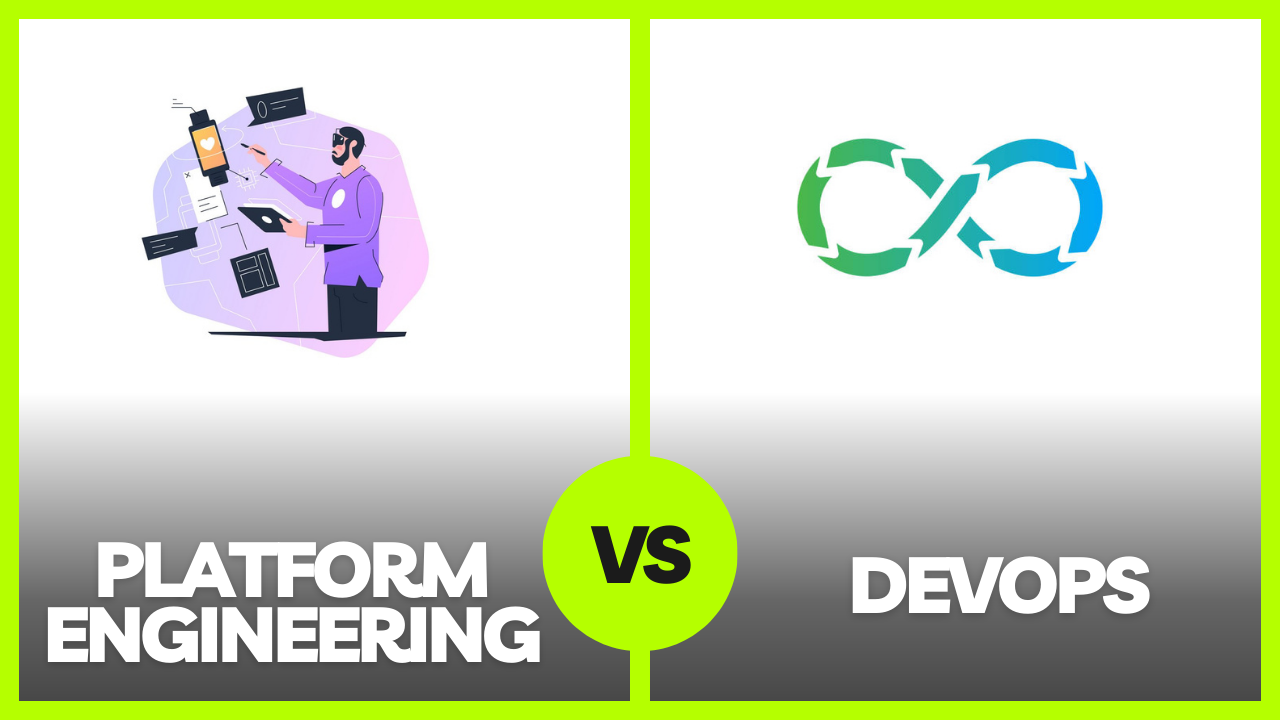Platform Engineering vs. DevOps: A Synergistic Approach to Software Delivery
DevOps & Platform Engineering streamline software development by enhancing collaboration and managing infrastructure, leading to faster time-to-market, reliability, scalability, resource utilization, and improved collaboration.

Discover how merging DevOps and Platform Engineering creates a more streamlined approach to software development.
In the rapidly evolving landscape of software development and delivery, two prominent methodologies have emerged to streamline operations and enhance collaboration within development teams: DevOps and Platform Engineering. While they share similar goals of accelerating software delivery and improving reliability, they differ in their approach and focus. In this article, we will explore the concepts of DevOps and Platform Engineering, their roles, and how they can complement each other to create a powerful and efficient software development environment.
DevOps
DevOps is a cultural and technical philosophy emphasizing collaboration between development and operations teams throughout the software development lifecycle. The primary goal of DevOps is to break down silos and create a seamless flow of communication, integration, and delivery across different stages of development and deployment. Automation, continuous integration, and continuous delivery (CI/CD) are key principles of DevOps, allowing organizations to achieve faster and more reliable software releases while maintaining a focus on quality.
Platform Engineer
Platform Engineering, on the other hand, is a specialization within the broader DevOps framework that focuses on designing, building, and managing the underlying infrastructure and tools that support the software development process. Platform engineers work to create a robust and scalable platform that development teams can leverage to deploy applications seamlessly. They handle tasks such as setting up containerization technologies, managing cloud resources, and providing developers with self-service tools for deployment and monitoring.
How Both Can Be Used Together
DevOps and Platform Engineering are highly complementary, and their combination can lead to a more streamlined and efficient software development pipeline. The close collaboration between development and platform engineering teams ensures that the platform is tailored to meet the specific needs of the software being developed. Here's how they can be used together:
- Seamless Integration: By integrating Platform Engineering principles into the DevOps workflow, development teams gain easy access to standardized and well-managed infrastructure. This integration allows developers to focus more on building the application's features and less on the underlying platform.
- Infrastructure as Code: Platform engineers can apply Infrastructure as Code (IaC) practices, using tools like Terraform or CloudFormation, to automate the provisioning and configuration of infrastructure resources. This enables faster and more consistent infrastructure setup, reducing the chances of configuration errors and improving the overall stability of the application.
- CI/CD Pipelines: Platform engineers can collaborate with development teams to create robust CI/CD pipelines that automatically build, test, and deploy applications to production environments. This results in faster feedback loops, reducing the time it takes to deliver new features or bug fixes.
- Monitoring and Observability: DevOps and Platform Engineering teams can collaborate to establish comprehensive monitoring and observability practices. By gathering and analyzing performance metrics and logs, they can proactively detect and resolve issues, ensuring higher application reliability.
Benefits of Combining DevOps and Platform Engineering: The combination of DevOps and Platform Engineering offers numerous advantages for software development teams and the organizations they serve:
- Faster Time-to-Market: The collaboration between development and platform engineering teams eliminates bottlenecks and reduces handoffs, enabling quicker delivery of new features and updates to end-users.
- Improved Reliability: Standardized and automated infrastructure, along with robust CI/CD pipelines, leads to more stable and reliable applications.
- Enhanced Scalability: A well-designed platform allows applications to scale easily based on demand, ensuring optimal performance during traffic spikes.
- Efficient Resource Utilization: Platform Engineering practices optimize resource allocation, leading to cost savings and improved operational efficiency.
- Enhanced Collaboration: Cross-functional collaboration fosters a culture of shared responsibility and knowledge transfer, improving the overall team dynamics.
Conclusion
DevOps and Platform Engineering, when combined, create a powerful synergy that enhances software development and delivery processes. By aligning the efforts of development and platform engineering teams, organizations can achieve faster, more reliable, and more scalable software releases, ultimately leading to higher customer satisfaction and competitive advantage in the market. Embracing this combined approach can help organizations stay ahead in the ever-changing landscape of modern software development.
Deciding between Platform Engineering and DevOps may not be as difficult as it seems. For greater understanding, I recommend reading my other blog on 5 reasons I choose DevOps as a career
Hi! I am Safoor Safdar a Senior SRE. Read More. Don't hesitate to reach out! You can find me on Linkedin, or simply drop me an email at me@safoorsafdar.com
